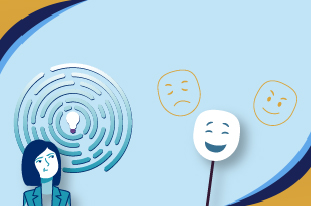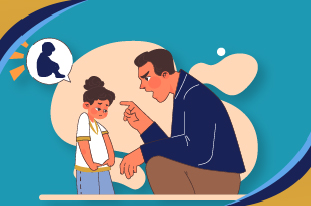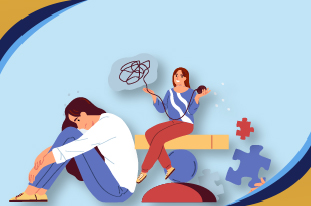Depression is a form of mental health condition where a person feels persistent sadness. This is a common and serious mental mood disorder worldwide. This mental state affects people in how they feel and think about life events, even the enjoyable moments.
But when we talk about crippling or debilitating depression, we refer to the serious form of depression that hinders a person’s daily life, work, and enjoyment.
Anyone whose symptoms of depression are prolonged can be counted as having debilitating depression. It can have a serious or damaging effect on a person’s quality of life and ability to performance like daily tasks, including eating, sleeping, working, and maintaining relationships.
According to the National Institute of Mental Health (NIMH), nearly 7.1 % of adults in the United States will have experienced at least one major depressive disorder episode in their lives. Crippling depression is a common mental disorder. But after knowing that you are not alone does not mean that dealing with debilitating issues is made easier.
What Is Major Depression?
The meaning of “crippling depression” is a common way to talk about a very severe type of depression. The clinical or medical name for this condition is major depressive disorder, also known as clinical depression. This is a mental condition that brings a persistent feeling of sadness and a loss of interest in activities. It changes how a person feels, thinks, and acts, which further causes a variety of emotional and physical problems.

For psychiatrists who are to diagnose crippled depression, they need to look for patients must have a low or sad mood or a loss of interest in things they once enjoyed. These feelings must last for at least two weeks.
Remember, depression is not a weakness or a character flaw. It is a mental condition, and a person cannot just snap out of it. This mood disorder affects so strongly that it becomes impossible for a person to carry out normal daily tasks.
The Signs Of Crippling Depression
The signs of crippling disorder come in three main areas of life:
- Feelings
- Body
- Thoughts
The feelings include sadness, low mood, emptiness, or hopelessness. A person also feels irritability, anger, or full of guilt. In children or young adults, the signs may be anger or irritability instead of sadness.
Physical signs can be very real. The body may feel tired, with a lack of energy for even small tasks.
Sleep pattern can also change, with a person having trouble falling asleep or sleeping too much.
There may also be changes in a person’s eating habits that cause them to gain or lose weight without trying. Some people with depression also have unexplained physical problems like headaches or aches and pains in any part of the body.
The thought pattern also changes in depression. It can be hard to concentrate, remember things, and make decisions. A person can feel worthless and remain on past failures. They can also have frequent thoughts about death or suicide.
The combination of these emotional and physical signs can create a difficult cycle. The physical signs of fatigue and low energy make it harder for a person to get out of bed. This then causes a person to have less activity and to avoid friends. The lack of social activities makes a person lonelier and feel more worthless or guilty.
This is a main reason why the condition feels “crippling” and makes daily activities so hard to perform.

Other Mental Conditions That Can Happen With Depression
Depression often does not come alone. It comes with other mental health conditions. This is called a co-occurring condition or a dual diagnosis. Familiarity with these other conditions is important because they can make the signs of depression more severe and hard to treat.
Anxiety Disorder
Anxiety is the most common condition that occurs with crippling depression. About 60% of people with one disorder can have the other disorders as well. Anxiety and depression have common signs, like trouble sleeping, poor concentration, and irritability. When these two mental conditions happen at the same time, they can be harder to treat because the signs are more intense and the situation worsens.
Bipolar Disorder
Bipolar disorder, also called “manic depression, “is a mental health condition that causes extreme changes in mood. These changes include periods of low mood and periods of very high mood called mania. The periods of low mood have the same signs as in major depression. The presence of a manic period is opposite to major depressive disorder. This is why healthcare providers need to look for signs of mania to make the right treatment.
Substance Use
A close link exists between depression and the use of drugs or alcohol. Many people who have depression may use substances to try to feel better. This is sometimes called self-medication. This connection is complex, with substance use sometimes causing depression-like feelings and depression sometimes leading to substance use. When a person has both a substance use problem and depression, the signs of both conditions can be more severe, and the risk of suicide is higher.
Post-Traumatic Stress Disorder (PTSD)
A person who has experienced a stressful or scary event may have both PTSD and depression. These two conditions share many signs, such as trouble sleeping, trouble focusing, and a loss of interest in activities. People with PTSD are three to five times more likely to get depression.
A Path Towards Healing
Major depression can feel overwhelming, but it is one of the most treatable mental health conditions. If a person has signs of depression, they should make an appointment to see a doctor or a mental health professional as soon as they can.
Treatment for depression often involves a mix of medication and talk therapy. Studies show that both treatments together are more effective than one alone. A healthcare provider can help a person create a treatment plan that fits their specific needs.
Early treatment is more effective. It can help a person find relief and prevent the condition from getting worse over time. The path to healing is a process, and it is important to remember that success is possible.
Manage Your Crippling Depression With Orange Coast Psychiatry
If crippling depression is taking control over your mental and physical health, Orange Coast Psychiatry is here to help. We provide more than one treatment plan according to the patients’ personalization. The treatment plan can range from therapy to medication management plans. Give us a call today and book an appointment with our expert psychiatrists.


















